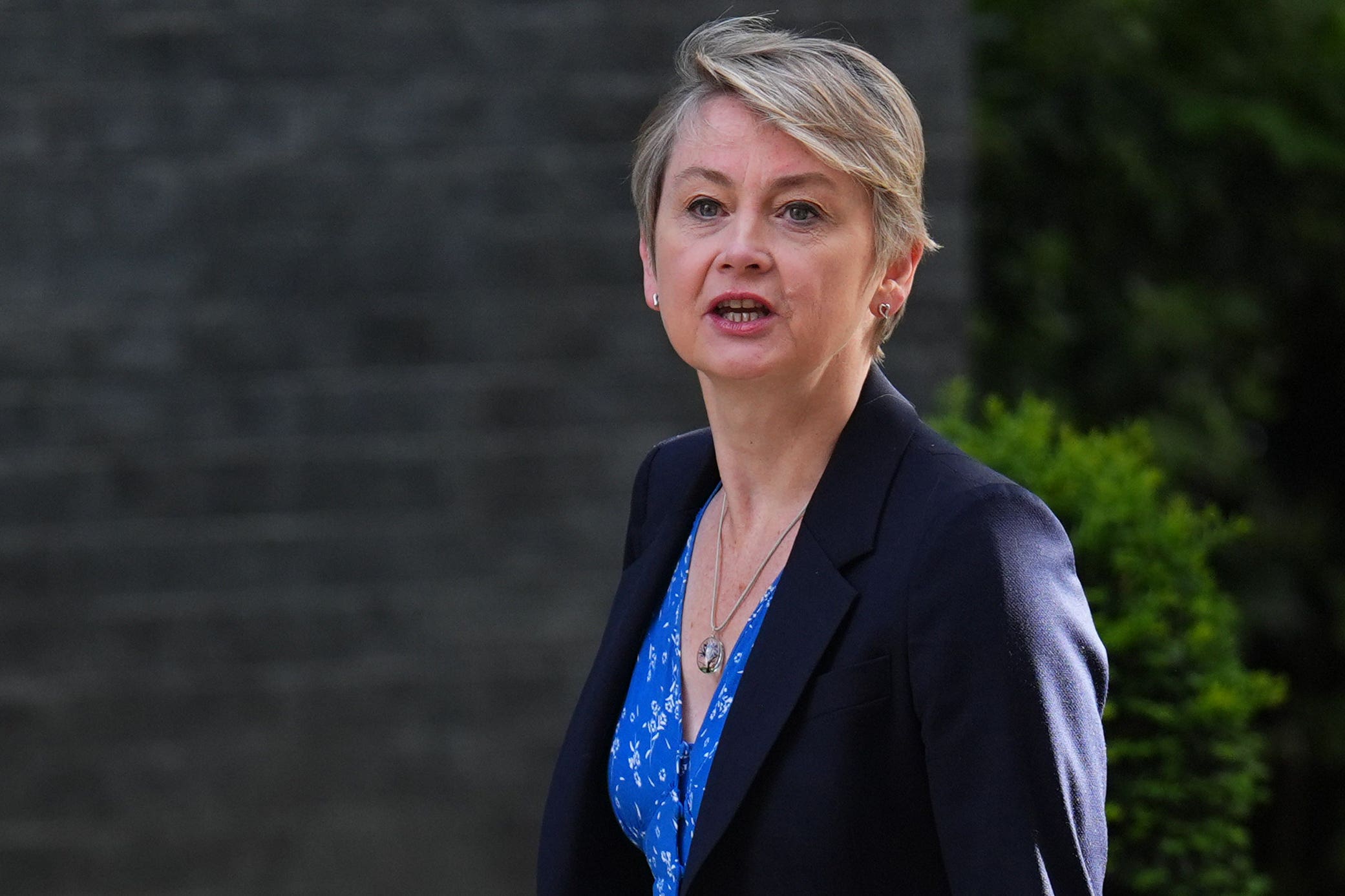Yvette Cooper is right about the need to tackle extremism – but will the government actually do it?
Editorial: The Home Office will also review whether extreme misogyny should be treated as terrorism

When this month’s riots broke, the government’s correct initial response was to regard them as a law and order issue. Robust policing and speedy, tough sentencing helped to quell the violent disorder.
A wider response, which looked into the root causes of the violent disorder, was always going to be necessary – it is not the same as excusing the totally unacceptable behaviour. So Yvette Cooper, the home secretary, is right to ask her department to search for gaps in the UK’s approach to tackling extremism.
Although the Labour manifesto pledged to “update the rules”, the violence seen this month undoubtedly makes the exercise more urgent. As Ms Cooper said: “For too long governments have failed to address the rise in extremism, both online and on our streets, and we’ve seen the number of young people radicalised online grow.” It is very worrying that 72 of the people charged following the riots are under 18.
The Home Office will review the rise of both Islamist and far-right extremism and wider trends, including whether extreme misogyny should be treated as terrorism amid concern that influencers such as Andrew Tate are radicalising teenage boys online. A tougher stance on this will be needed for Labour to achieve its ambitious target of halving violence against women and girls in a decade. It is appalling that the number of these crimes increased by almost 40 per cent between 2018 and 2023.
The review will include the proliferation of dangerous material online. This aspect must be more than a box-ticking exercise given the role social media played in spreading highly misleading messages and organising the riots after the horrific Southport stabbings.
Ministers are treading carefully. Understandably, Keir Starmer did not want to be lured into a war of words with Elon Musk – precisely what the Twitter/X owner wanted in order to promote and boost his business. Mr Musk’s claim that “civil war is inevitable” in Britain looks even more ridiculous now than it did then.
At present, ministers seem minded to allow the long-awaited Online Safety Act to take effect and monitor its workings rather than launch another review – for example, into whether to revive the abandoned plan to ban “legal but harmful” content. However, they should not shy away from imposing tougher laws on the tech companies if they do not clean up their act.
Ms Cooper should ensure her review is as “rapid” as she promises. Arguably, much can be learned from previous inquiries, including Louise Casey’s into integration in the UK in 2016. Prophetically, given recent events, Dame Louise warned: “A failure to talk about all this only leaves the ground open for the far right on one side and Islamist extremists on the other. These groups are ideologically opposed to each other but actually share the same goal: to show that diversity and modern Britain or Islam and modern Britain are somehow incompatible. But of course they are wrong.”
Indeed, the government’s response to the riots will need to address a lack of integration in some parts of England. A more integrated society would surely reduce hate crime and sectarian violence and help in the fight against extremism and terrorism.
Regrettably, the counter-extremism issue too often becomes a political football. In line with the script for ministers in the new government, Ms Cooper could not resist an attack on her Conservative predecessors, saying: “Action against extremism has been badly hollowed out in recent years, just when it should have been needed most.”
She has a point. There has been little progress since 2015. Michael Gove, the former communities secretary, proposed a new definition of extremism but ran out of time before the election. Although the context was admittedly different, the Tories seemed much keener to talk about Islamic extremism amid pro-Palestinian marches after the attack on Israel last October, than the far-right threat.
They have not changed their tune. Kemi Badenoch, the shadow communities secretary and Tory leadership contender, claims the 2010 Equality Act “has fed a lot of the discontent within communities, whether they’re complaining about two-tier policing or about the equality law being misapplied. You see it, whether it’s in the battles between women and trans rights activists, between different religions, between men and women, between Black and white.” This is the latest example of the candidates playing to the gallery of their party members, who will choose the next leader.
In contrast, Ms Cooper’s review is thankfully more rooted in the real world. The test will be whether it results in a new counter-extremism strategy that meets today’s challenges or joins the stack of similar exercises gathering dust on Whitehall shelves.






Join our commenting forum
Join thought-provoking conversations, follow other Independent readers and see their replies
Comments